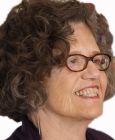Environment
Untangling Nature and Nurture
The Creole son on growing up mixed-race.
Posted April 18, 2020 Reviewed by Lybi Ma

The following is part of what my son, who is in his late thirties, wrote as an afterword to my book, Creole Son: An Adoptive Mother Untangles Nature and Nurture. I did not edit out anything with which I disagreed.
The Creole Son Speaks by Marc Trimberger
My mom asked me to read this book to be sure I was comfortable with what she wrote and that it was accurate, but I couldn’t stop turning the pages. I was reliving much of my life. Seeing the complexity of my life on the page was good for my sense of self, but it also brought up situations and feelings that I had blocked from my memory. I think this is a common occurrence for those of us who have had painful or stressful experiences. At times I felt ashamed or embarrassed by some of my life events, but I reminded myself that every part of my life made me who I am. I am the result of my positive and negative experiences, although I don’t like to use the word negative because I believe a person can find something good if only a lesson is learned and not repeated.
For me, being adopted and growing up mixed-race with a white mother in a single-parent household never seemed strange or unusual. I can’t remember feeling like I was different or having issues with this situation, even though I was aware of it from as far back as I can remember. It just didn’t create many problems for me, especially because there were several black boys with white single moms in our neighborhood. If anything, looking back on my childhood, adoption was a blessing, given what I now know about the racial tensions present in my birthplace in Louisiana. I felt I was lucky to have two birthdays, the second one being my arrival day. Being adopted gave me an edge, a little more character; I was not just like everyone else. Only once in my first 11 years, up until junior high, did I experience a problem with being adopted. I was involved in an altercation with a kid who made fun of me for not having a real mom. It didn’t make sense to me, because my adopted mother was then the only mom I knew.
I never thought about the so-called problems created by adoption until I was an adult and watched the film Losing Isaiah. I never felt lost or out of place. Except for that one time, I was never teased or picked on or excluded because I was adopted. Coming to terms with being black was harder. Starting in junior high, I realized that I didn’t understand ebonics, the black talk used by some of my peers, because I hadn’t heard it before that. But I found it easy to pick up. A few times, I would forget that my mom and other white friends couldn’t understand it. Mostly, I could switch languages easily between my white and black worlds.
I felt a lot of tension, however, between my desire to be one of the cool “niggas” in my hood, and being more comfortable with a mostly white group of friends who, like me, had attended private elementary school. Even though some of my new black friends often tried to test my gangsta by picking on me or trying to bully me, I felt the need to be accepted by them. I realized my teen life was more difficult than that of my white friends. These tensions were still with me until my thirties. Even when I lived in middle-class Berkeley or Oakland, I would still dibble and dabble in the hood.
I was very eager to meet my biological family. Being able to meet my dad was more important than anything because I always wanted to have a dad. I remember asking my mom on numerous occasions if she had a boyfriend and if she was going to get one, mainly because I hoped if she did find a man then I could have a dad. If I hadn’t had a fairly large circle of friends, some of whom felt like brothers or sisters, I probably would have wanted to find my biological family to find siblings. As it was, I mainly wanted a dad, but it was wonderful to learn that I had six half brothers and sisters, all mixed-race or black.
I had the desire to meet my biological mother, but I was a little apprehensive because I love my mom, and I felt I hadn’t shown her how absolutely incredible she is, how much she means to me. Even though my mom had arranged for the reunion, I didn’t want her to think for a moment that someone could take her place. I was scared it would hurt her if I connected with my biological mother. Because I had caused my mom so much stress as a teenager, and because I knew I was in no way living up to my potential or pursuing a lifestyle that reflected the way I was brought up, I feared she might feel I didn’t care as much as I knew I did. This was my greatest fear as an adopted child. I was fortunate to be able to discuss my fear with my friends, who reassured me that my adopted mom was my mom, period.
I remember meeting my birth mom first, then my brother, and then my father who was the person whom I wanted to meet most. I appreciate that my birth mom had told her other children about my existence, that she was so welcoming and that she helped me find my birth dad. That first day he came to my birth mom’s house, we played dominoes, talked, and drank Tanqueray.
Louisiana was a welcome change to the fast-paced city life of the San Francisco Bay Area where I was raised. I remember when I first arrived at my biological mother’s mobile home in the middle of a sugar cane field. There were no sidewalks and the nearest store was a 45-minute walk. I was used to living in a city with busy streets, houses all bunched together, and a store on almost every corner. But I liked being in the country. The food was also different and interesting.
I remember the first time I looked in the fridge. Instead of finding ground beef, pork, or chicken, I saw deer sausage, squirrel, and duck. I couldn’t wait to get a taste of these foods that I didn’t even know people still ate. I thought all those stories of eating frog legs, raccoons, and squirrels were just stories or things people said to make jokes about the south. When I was living with my birth mom, I ate the sausage, squirrel, frogs legs, and duck. Later, my dad cooked coon, rabbit, turtle, and armadillo. I liked them all, but my favorite was squirrel.
I loved the energy people put out in Louisiana, with friendly smiles all around. I was always worried about racism in the south, but I didn’t get that type of vibe from people. I’m sure there are still racist thoughts and practices in Louisiana, but I experienced that more in liberal California.
Meeting my birth family was very important. It was the key to my being comfortable in my own skin. It gave me a new sense of self and made me feel more OK with my life. I had been a little tough on myself about where I was headed and how little I had achieved since I obviously possessed the skills and ability to do so much more. I definitely looked down on the man I had become. I was so different from my cousins, the almost perfect children of my mom’s brother and sister. It was like they were programmed to be perfect kids. I was uncomfortable that even my younger cousins were more educated and mature than me. I wished I could show these relatives that I was able and I didn’t want to be a negative reflection on my mom. I knew that deep down, even though she never spoke it, my mom felt responsible and she felt embarrassed or shamed by the way I had turned out. At least so far. But I felt stuck in my lifestyle.




